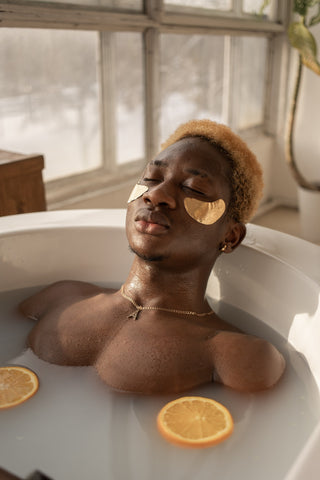
10 DIY Ingredients That May Harm Your Skin
We are all guilty of trying DIY skincare hacks that contain ingredients that we can easily find in our kitchen or pantry. While it may seem like a cheaper and more natural way to take care of your skin, not all ingredients are created equal. Some DIY ingredients can actually harm your skin instead of improving it.In this blog post, we’ll be discussing 10 DIY ingredients that you should avoid to keep your skin healthy and glowing.

Lemon Juice
Lemon juice is a common ingredient in many DIY skincare hacks because of its brightening properties. However, the high acidity of lemon juice can irritate your skin and cause hyperpigmentation. It’s best to avoid using lemon juice as a toner or brightening agent on your skin.
Baking Soda
Baking soda is often used as an exfoliant because of its abrasive texture. However, it’s too harsh for most skin types and can cause dryness, irritation, and even acne. Instead, try using a gentler exfoliant like sugar or oatmeal.
Toothpaste
Toothpaste may seem like a quick fix for a pimple, but it can actually do more harm than good. Toothpaste contains ingredients like baking soda and alcohol that can dry out your skin and cause irritation. It’s best to stick to targeted acne treatments that are formulated for your skin type.
Cinnamon
Cinnamon is a popular ingredient in DIY face masks because of its antibacterial properties. However, it can also cause skin irritation and allergic reactions. If you want to use cinnamon in your skincare routine, make sure to patch test first and dilute it with a carrier oil.
Sugar
Sugar is a common ingredient in homemade body scrubs, but it can be too harsh for your skin. The rough texture of sugar can create micro-tears in your skin, leading to dryness, irritation, and even infections. Instead, opt for a gentler exfoliant like coffee grounds or salt.
Vinegar
Vinegar is often used as a natural toner and can be effective in balancing your skin’s pH. However, the high acidity of vinegar can be too harsh for some skin types and cause irritation and redness. If you want to use vinegar in your skincare routine, make sure to dilute it with water and patch test first.
Hydrogen Peroxide
Hydrogen peroxide may seem like a quick fix for acne or dark spots, but it can actually damage your skin’s natural barrier and cause dryness and irritation. It’s best to avoid using hydrogen peroxide on your skin and stick to more gentle and targeted treatments.
Egg Whites
Egg whites are often used in face masks because of their tightening and toning properties. However, raw egg whites can contain salmonella bacteria and can cause allergic reactions on your skin. It’s best to avoid using raw egg whites and opt for skincare products that don’t pose a risk of infection.
Salt
Salt is another abrasive ingredient that’s commonly used in body scrubs. Like sugar, it can be too harsh for your skin and cause irritation and dryness. Instead, try using a gentle exfoliant like oatmeal or ground almonds.
Essential Oils
Essential oils are often used in DIY skincare hacks because of their natural fragrance and therapeutic properties. However, some essential oils can be too harsh for your skin and cause irritation and allergic reactions. Make sure to research the essential oil you’re using and patch test first.
While DIY skincare hacks can be fun and cost-effective, it’s important to do your research and make sure that the ingredients you’re using are safe and effective for your skin. Avoiding these 10 DIY ingredients can help to prevent irritation, dryness, and other negative side effects on your skin. Always remember to patch test new ingredients and stop using anything that causes irritation or discomfort.






